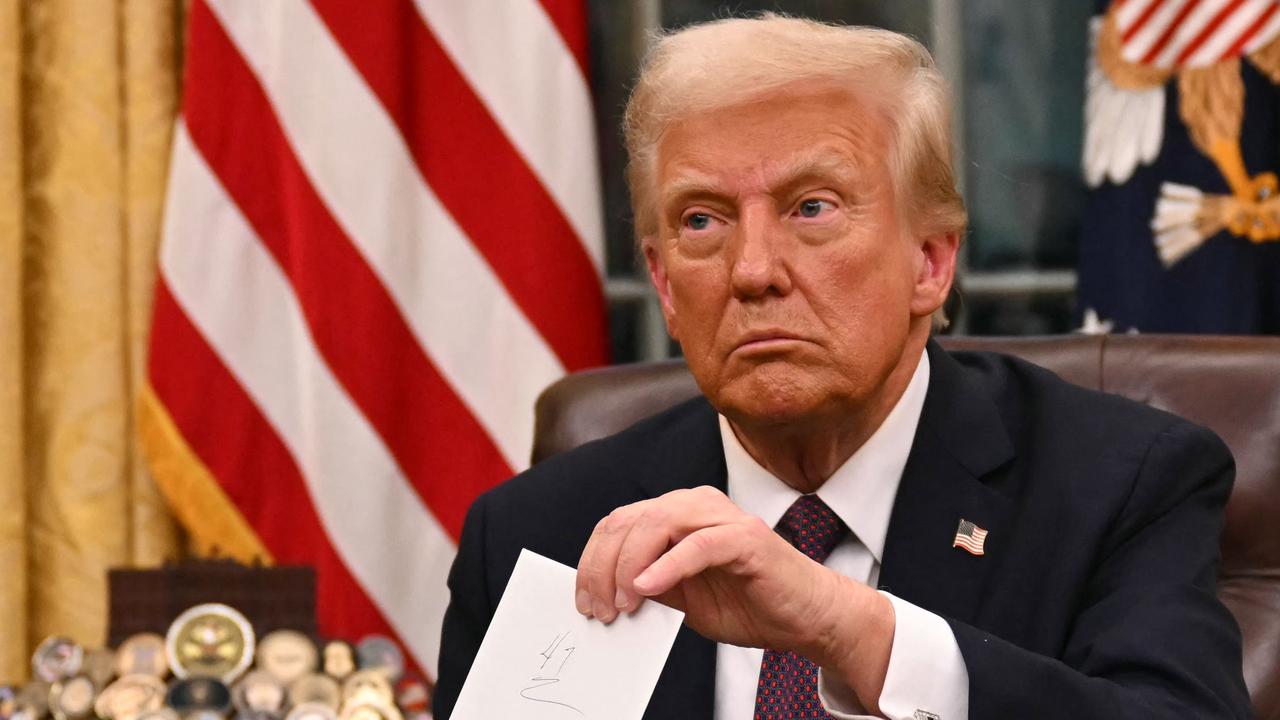Confusion in Greece as Prime Minister Alexis Tsipras sends mixed messages
GREEK Prime Minister Alexis Tsipras continues to bamboozle European leaders, telling them he is ready to do a deal but then telling citizens to vote no.
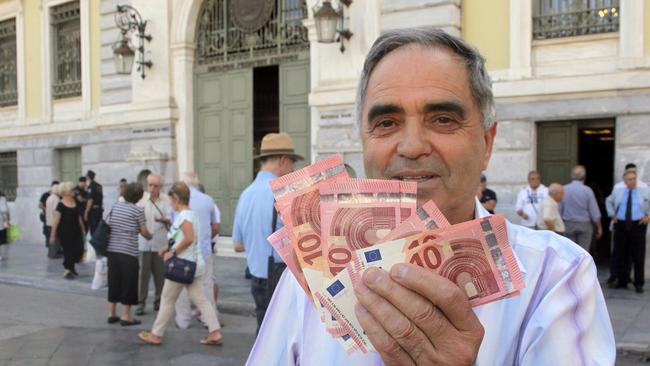
GREEK Prime Minister Alexis Tsipras continued to bamboozle European leaders, telling them he was ready to do a deal but then defiantly telling his people to vote no against such a deal with the nation’s “blackmailers”.
Yesterday began with a glimmer of hope after Tsipras publicly released a letter he had written to the European Union a day earlier in which he declared he would cede to their demands in exchange for a third bailout deal worth 30 billion euros.
But hours later to took to State television to tell Greece they needed to send a message to Europe with a ‘no’ vote to austerity and compromise and adding that that did not mean the nation would have to leave Eurozone.
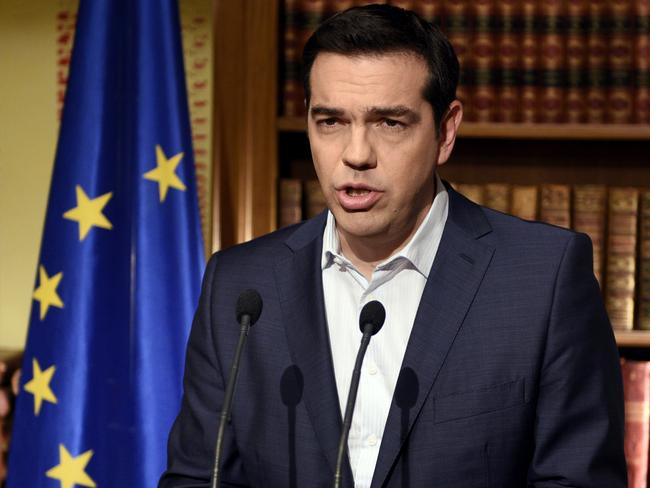
That, he said, would simply give the nation greater bargaining power when talks resumed next Monday.
“There are those who insist on linking the result of the referendum with the country’s future in the euro,” he said. “They even say I have a so-called secret plan to take the country out of the EU if the vote is ‘No’. They are lying with the full knowledge of that fact.”
In Germany, officials remained bemused and said it would be a more effective good-cop bad-cop routine if only Tsipras wasn’t playing both roles.
Europe’s finance ministers met yesterday and reaffirmed there was no point discussing anything until after the referendum.
Not even the referendum is guaranteed to be held with some Greek MPs saying it could be abandoned and even if it did go ahead, the Council of Europe, an independent body that monitors elections and human rights, said yesterday the motion would fall well short of European standards since it was being held with less than a fortnight’s notice, no international observers were scheduled to be involved and the longwinded question had not been held up to judicial or parliamentary scrutiny.
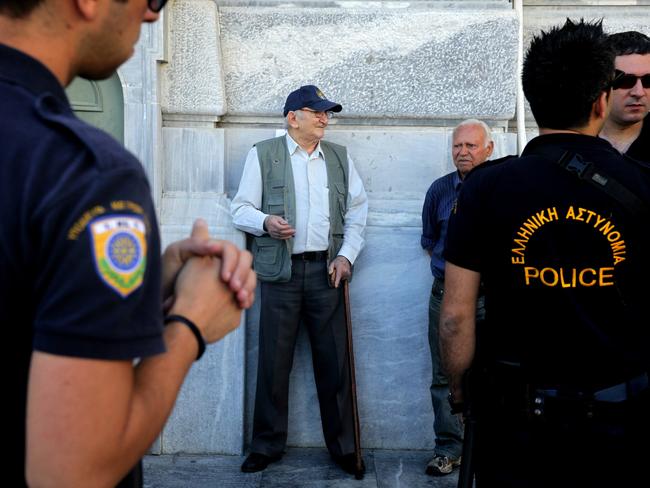
The only thing that seems certain in this long-running melodrama is that after this Sunday, referendum or not, Greece will either remain in the Eurozone and be looking for a new prime minister who vowed to step down if the vote was ‘yes’ or be looking to cut ties with Europe with the unlikelihood of any immediate bailout relief.
Greece is out of options after defaulting on the loan repayment on Tuesday, which cut it off from further funding and pushed it to the wall.
Yesterday, despite 1000 banks opening to allow pensions to access up to 120 euros of their pension, many pensioners who had lined up all day went home empty-handed such was the rush on the banks that could not control the crowds.
Some customer were confused with some banks serving clients only in alphabetical order while others were told their pensions had not been deposited and to return Thursday or Friday. It is not even clear whether banks will open then anyway, closed as they were when capital controls were imposed last weekend.
Even the 60 euro cap a day savers are allowed to withdraw though ATMs failed with some machines running out of cash and others specifically running out of 30 euro notes meaning they could only dispense a 50 euro bill.
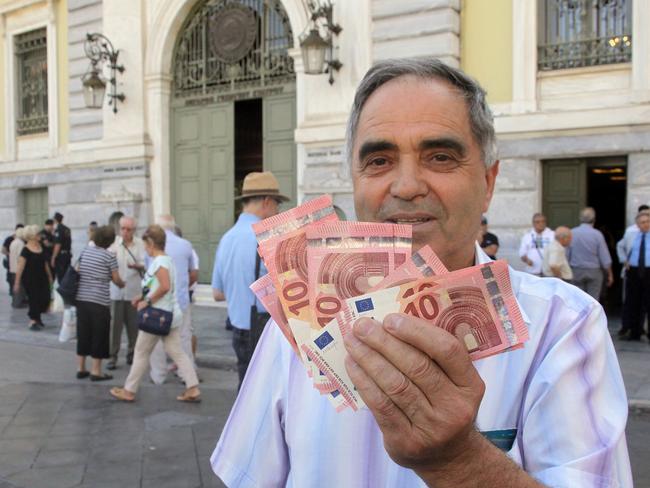
What is clear with no talks possible at the moment, Europe and Tsipras have taken to communicating through their personal social media accounts and or via the mainstream media.
Tsipras took to social media to suggest the referendum would show the people no longer wanted austerity measures and that would therefore put pressure on Europe to make further loans.
Not so said several Euro MPs who said such a voting was effectively a vote on whether Greeks wanted the euro or to return to their own currency.
European Council President Donald Tusk tweeted a direct response to Tsipras claim: “Europe wants to help Greece. But cannot help anyone against their own will. Let’s wait for the results of the Greek referendum.”
This view appeared to be reinforced by IMF Managing Director Christine Lagarde who yesterday said Greece should reform its economy before any more loans were discussed.
“Given where we are, my suspicion is it would be much preferable to see a deliberate move towards reforms (and) for that to be followed through by the other side of the balance,” she said.
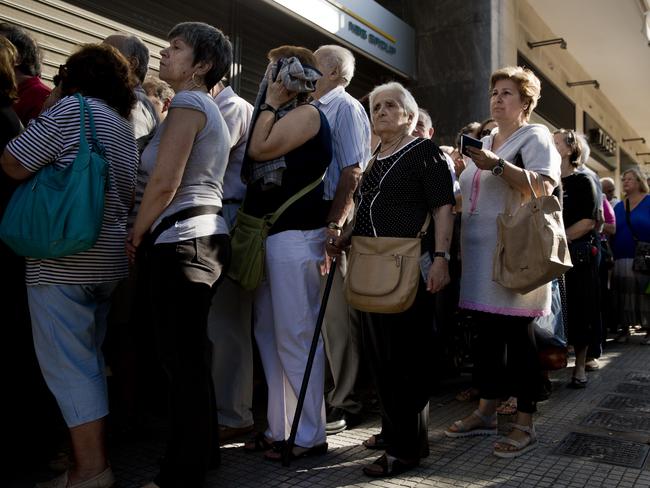
Q&A — What the Greek crisis means for Australia
Are we going to see another GFC?
That doesn’t appear at all likely at this stage. While there are concerns about a domino-effect — in which the fall of Greece topples other economies such as those of Portugal and Spain — movements in bond markets indicate investors are far from panicked. For now. The broader banking system is much less exposed to this threat than it was to the dodgy deals that triggered the GFC. Investment bank JP Morgan has estimated European banks’ exposures to Greece is now just €5 billion ($7.2 billion) of total balance sheet value of €32 trillion.
Is my superannuation at risk?
Super funds set to “balanced” lost about 2 per cent in June, mainly due to share market falls caused by concerns about Greece. But if you look at 2014-15 overall, a typical fund still gained nearly 10 per cent. Greece’s debts are not a new problem. They emerged in 2009. According to super fund analysts Chant West, since then we’ve had six straight years of positive returns, adding up to about 73 per cent growth. Try to look past day-to-day movements on the markets. You wouldn’t do it for your house. Why do it for your super?
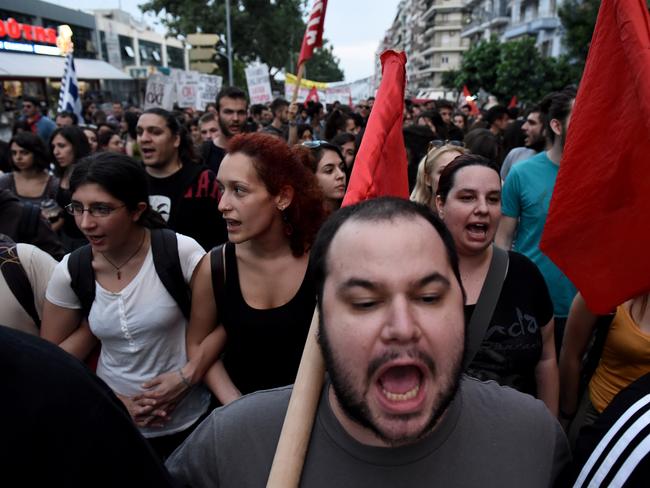
What will happen to interest rates?
Futures markets suggest there’s not much chance of a rate cut, whether it be next week, next month or next year. If the souvlaki does hit the fan, the RBA has scope to reduce the official interest rate to stimulate the economy. We are one of the few significant developed economies with a cash rate that isn’t set to barely above zero. If financial strife was to prompt the RBA into action, it shouldn’t be assumed that borrowers would be winners and savers, losers. If banks were struggling for wholesale funds they may have to offer more attractive rates to those with cash to deposit. And banks may not pass on to mortgagors RBA cuts in full.
Will a holiday in the Greek islands become cheap?
If Greece has to revive the world’s oldest currency, the drachma, then you may want to set your sights on Santorini. Not only would you have a good time for less, you’d be helping the Greek economy. However, it’s worth keeping in mind that there is the potential that levels of crime would increase if the economy totally collapsed.


